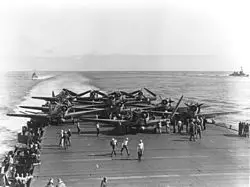Battle of Midway
United States Backstory
With America still reeling from the attack on Pearl Harbor, it was time for a counterattack. Both sides had already vocally declared war on one another, and now the next phase was in motion. Although the Battle of Midway was considered a largely naval battle, the outcome of it came down to U.S. intelligence and code breaking.
Japan planned on using the emotions of the U.S. Army, knowing that they were still angry about Pearl Harbor. Some of the aircraft carriers had not been completely destroyed by the attack, so Fleet Commander Yamamoto Isoroku flew near a potential target that was close to Pearl Harbor with the plan to draw out the Americans. A counterattack would be met with another surprise attack by Japan, and put them in a winning position again.


Japan Backstory
If the plan had succeeded, it would have meant 2 incredibly easy victories for the Japanese military against an opponent that many considered tough. Before the Japanese could hatch their plan, the U.S. had already figured out the Japanese fleet codes. Commander Admiral Chester W. Nimitz not only knew the exact plans, but was able to position his carriers in position to intercept the air strikes before they commenced.
The interception of messages was authentic and vital to the U.S., with the May 16th notice of the enemy position being a truly masterful moment. With this key information, Nimitz was able to counter the attack with minimal loss to his men. Even with everything in America’s favor, things did not go smoothly.
An array of confusion in the air caused 36 of the 42 Torpedo bombers to be shot down. The confusion in the air allowed the American dive bombers to slip through, and at a critical time when Japan was refueling, rearming and otherwise not in a position to fight. The carriers were completely defenseless as the Americans sank the most prominent Japanese fleet carriers, Hiryu, Soryu, Akagi and Kaga. The total damage with these 4 vessels included 322 of their aircraft and 5 thousand Japanese men.

Why Was the Battle of Midway Important?
It was the perfect answer to Pearl Harbor, and wiped out a considerable amount of the Imperial Navy’s Air Force. Among the many lives that went down with the Japanese fleet, many of them were trained mechanics, veteran seaman and experienced ground crews. In one battle the U.S. took a big chunk out of Japan’s sea and air power. And now with the U.S. in an offensive position, it set up the next branch of war against Japan.

Who Was Affected?
Japan suffered mightily, and after their clever surprise attack on Pearl Harbor, they were already on the defensive. This completely changed the tactical planning for Japan, as they would have little time to recover, clearly as America was now on the offensive and finding weak points in their protocols. There was also the issue with their communications not being coded properly. A few decoded message during the past few weeks just handed them one of the biggest defeats in their countries history. There was little time to repair the leak, and Japan had to scramble for a proper defense.

Names to Remember
Isoroku Yamamoto was born April 4th 1884 and was a Japanese Marshal Admiral of the Combined Fleet. He played a key role in the Pearl Harbor attack and participated in the Battle of Midway. When his flight plans were decoded as part of the intelligence break, he was shot down from the skies. As a decorated and important officer to the Japanese force, his passing caused a lot of unrest within the talented ranks.

Important Facts
Here are some important things to remember about the Battle of Midway.
• The Battle of Midway was a direct retaliation for the Pearl Harbor attack
• It occurred six months after Pearl Harbor and dealt a crippling blow to Japan
• Code breaking technology allowed the Americans to know exact enemy plans
• Messages were intercepted as early as May 2nd
• Many consider the Battle of Midway a turning point in World War I

Conclusion
Even with all of the right pieces, the Americans had a small communication error of their own that could have changed the outcome of the battle. Instead it worked in their favor, and put them in the best position to go on the offensive.




